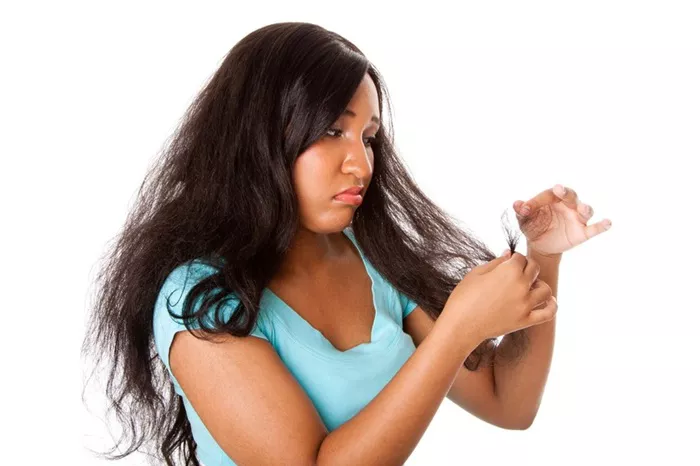Water is essential for every function in the human body, from maintaining organ health to regulating body temperature. But could something as simple as not drinking enough water contribute to hair loss? While genetics, hormonal imbalances, and nutritional deficiencies are often the primary culprits behind thinning hair, dehydration may also play a significant role. Understanding how water impacts hair health can help you make better lifestyle choices to maintain a full, healthy head of hair.
How Hydration Affects Hair Growth
Hair follicles, like all cells in the body, require adequate hydration to function optimally. Each hair strand is made up of nearly 25% water, meaning that dehydration can directly affect hair structure and growth. When the body lacks sufficient water, it prioritizes vital organs over less critical functions, such as hair production. This means that hair follicles may not receive the nutrients and oxygen they need to thrive, leading to weaker, more brittle strands and, over time, increased shedding.
Dehydration also affects blood circulation. Proper hydration ensures that blood flows efficiently, delivering essential nutrients and oxygen to the scalp. When you’re dehydrated, blood becomes thicker, reducing circulation to peripheral areas like the scalp. This diminished blood flow can starve hair follicles, slowing down hair growth and potentially accelerating hair loss.
Signs of Dehydration That May Impact Hair Health
Before hair loss becomes noticeable, the body often shows other signs of dehydration that can indirectly affect hair. Dry scalp, increased hair brittleness, and slower growth rates are early indicators that your body may not be getting enough water. A dehydrated scalp can become flaky and irritated, leading to conditions like dandruff, which may further weaken hair roots.
Additionally, chronic dehydration can lead to nutrient deficiencies. Water is crucial for absorbing vitamins and minerals from food, and without it, even a well-balanced diet may not provide enough nourishment for hair follicles. Key nutrients like biotin, zinc, and iron—essential for hair strength and growth—may not be adequately absorbed, compounding hair loss issues.
The Role of Water in Detoxification and Hair Health
Another way dehydration contributes to hair loss is by impairing the body’s natural detoxification processes. Toxins and waste products build up in the body when there isn’t enough water to flush them out through urine and sweat. These toxins can accumulate in the scalp, clogging hair follicles and leading to inflammation, which is a known contributor to hair thinning and conditions like alopecia.
Proper hydration supports the lymphatic system, which helps remove waste from tissues. When this system is sluggish due to dehydration, scalp health suffers, potentially leading to increased hair shedding. Drinking enough water ensures that toxins are efficiently removed, keeping the scalp environment clean and conducive to healthy hair growth.
How Much Water Should You Drink to Prevent Hair Loss?
The amount of water needed varies depending on factors like body weight, activity level, and climate. A general guideline is to drink at least eight 8-ounce glasses of water per day (about 2 liters), but some individuals may require more. A good indicator of proper hydration is the color of your urine—pale yellow suggests adequate hydration, while dark yellow or amber signals dehydration.
If you’re experiencing hair loss and suspect dehydration may be a factor, increasing your water intake is a simple first step. However, water alone may not reverse hair loss if other underlying issues are present. Combining proper hydration with a nutrient-rich diet, stress management, and good hair care practices will yield the best results.
Other Lifestyle Factors That Influence Hydration and Hair Health
While drinking enough water is crucial, other lifestyle habits can either support or hinder hydration levels. Excessive caffeine and alcohol consumption can dehydrate the body, counteracting the benefits of water intake. Diuretic substances increase urine output, leading to fluid loss that may impact hair health over time.
Diet also plays a role. Foods with high water content, such as cucumbers, watermelon, and leafy greens, contribute to overall hydration. A diet rich in omega-3 fatty acids, proteins, and antioxidants further supports hair strength and growth, working synergistically with proper hydration to maintain healthy locks.
When to Seek Professional Help
If you’ve increased your water intake and still notice excessive hair shedding, it may be time to consult a healthcare professional. Hair loss can stem from various causes, including thyroid disorders, autoimmune conditions, or severe nutritional deficiencies. A doctor or dermatologist can perform tests to determine the root cause and recommend appropriate treatments, such as supplements, medications, or specialized hair therapies.
Conclusion
While dehydration alone may not be the sole cause of hair loss, it certainly contributes to weaker, thinner hair by impairing follicle function, reducing nutrient delivery, and allowing toxin buildup. Ensuring adequate daily water intake is a simple yet powerful way to support hair health, alongside a balanced diet and proper hair care. If hair loss persists despite these measures, seeking medical advice will help identify and address any underlying conditions. Remember, healthy hair starts from within, and hydration is a key piece of the puzzle.
Related Topics:
- Can Hair Grow Back from Alopecia?
- What Is the Best Remedy for Falling Hair?
- What Does Alopecia Look Like When It First Starts?


